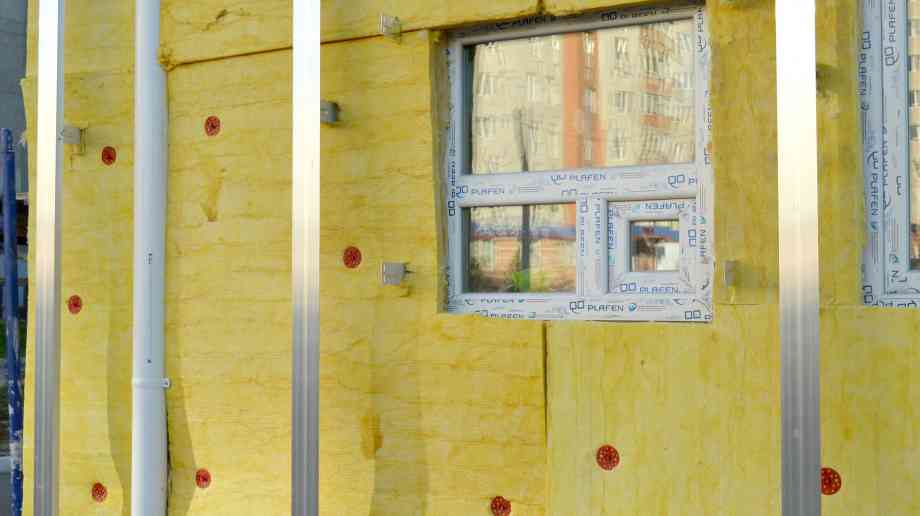Sue Robb of 4Children talks to Julie Laughton and Alison Britton from the Department for Education about the role of childminders in delivering the 30 hours free entitlement.
Government underestimating decarbonising housing challenge

The government is failing to grasp the enormous challenge of decarbonising the UK’s housing stock, which accounts for 20 per cent of our greenhouse gas emissions.
This is according to the Environmental Audit Committee whose latest report claims that the government’s legally enshrined target to be net zero carbon by 2050 will hit a roadblock unless urgent action is taken to improve energy efficiency of homes this decade.
In the Energy Efficiency of Existing Homes report, MPs argue that the government appears to have underestimated the costs to decarbonise UK homes by 2050, at between £35 billion and £65 billion. However, this does not include properties such as those with solid walls, or those in conservation areas which could make energy efficiency installations more challenging. Approximately 19 million UK properties need energy efficiency upgrades to meet EPC band C, and the EAC heard in evidence that it can cost on average £18,000 (before a heat pump installation). Therefore, the cost is likely to be far greater than the government’s estimate.
The committee is also concerned that the government has announced just over £4 billion of the £9.2 billion committed to in the 2019 manifesto for energy efficiency measures. To stimulate activity, MP s say that schemes such as the Home Upgrade Grants, Social Housing Decarbonisation Fund and phase two of the Green Homes Grant Local Authority Delivery Scheme should be front-loaded and rolled out without delay.
The Environmental Audit Committee recommends that the government should set out how energy efficiency improvements can be reached in homes currently out of scope in the ‘cost effective, practical and affordable’ criteria, as well as all allocated funding for the Green Homes Grant that has not been spent by the end of March 2021 should be rolled over.
Philip Dunne, chair of the committee, said: “Making 19 million homes ready for net zero Britain by 2050 is an enormous challenge that the government appears to have not yet grasped. In the next 29 years, the Government must improve energy efficiency upgrades and roll out low carbon heating measures: a material start must be made now.
“Government investment to improve energy efficiency has been woefully inadequate. The £9 billion that the government pledged at the election was welcome, but 16 months on, there appears to be no plan nor meaningful delivery. Funding allocated for the Green Homes Grant has not been spent, with only £125 million worth of vouchers – of the £1.5 billion budget – issued.
“Further schemes that endure must be rolled out, boosting the government’s credibility with householders and their contractors that it is determined to decarbonise the nation’s homes. This will give confidence to businesses that they can invest in upskilling and green jobs. Consumer advice must also make clear the necessity and benefits of retrofits: although installations may be disruptive for a short period, in the long run consumers can enjoy warmer homes with lower energy bills. This must be properly reflected in the system that assesses energy efficiency: EPCs are outdated and should be replaced with Building Renovation Passports, which set a clear pathway to decarbonise homes.
“Realism needs to be injected into the government. A much better understanding of cost, pace, scale and feasibility of skills development is desperately needed for net zero Britain.”
Company Focus
Just Lanyards is a subsidiary name of Gifts 2 Impress Limited, who have been trading for over 25 years, we therefore pride ourselves in having endless experience covering all aspects of the promotional merchandise industry.
Event Diary
UKREiiF has quickly become a must-attend in the industry calendar for Government departments and local authorities.
The multi-award-winning UK Construction Week (UKCW), is the UK’s biggest trade event for the built environment that connects the whole supply chain to be the catalyst for growth and positive change in the industry.
Supplier Profiles
Geo Energy
At GeoEnergy Design, we're on a mission to disrupt the traditional way heating and cooling ha
Latest Features
Professor Harith Alani, director of the Knowledge Management Institute at the Open University explains how AI can be used for good and bad.
Alex Lawrence, head of health & social care, techUK sets out techUK’s Five Point Plan for CareTech.

















